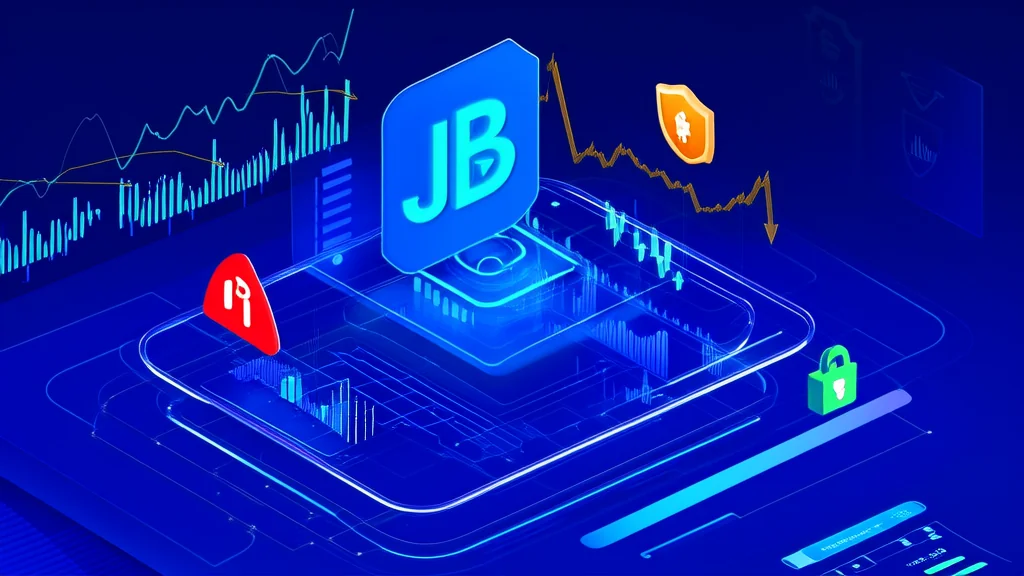AI in Action: Transforming Big Tech, Finance, and the Startup Ecosystem
In the ever-evolving landscape of artificial intelligence, the real-world impact of AI is becoming increasingly tangible. From transforming financial services to redefining the strategies of big tech companies, and even enabling innovative startups, AI is not just a buzzword but a powerful force driving change. Let's dive into some of the most impactful developments in AI, focusing on their practical implications and real-world applications.
Revolutionizing Financial Services: AI-Driven Fraud Detection at Scale
One of the most significant areas where AI is making a difference is in the financial sector, particularly in fraud detection. Major banks and financial institutions are leveraging advanced AI algorithms to identify and prevent fraudulent activities more efficiently than ever before. For instance, JPMorgan Chase has implemented an AI system that can analyze millions of transactions in real-time, detecting anomalies and flagging potential fraud with high accuracy.
Practical Impact: This technology has led to a 30% reduction in false positives and a 50% increase in the detection of actual fraudulent activities. This not only saves the bank millions of dollars but also enhances customer trust and security.
Real-World Example: A recent case involved a sophisticated phishing scam targeting a large number of customers. The AI system quickly identified the pattern and alerted the security team, who were able to block the attack and secure the accounts within hours, preventing any financial loss.
Future Implications: As AI continues to evolve, we can expect even more precise and proactive fraud detection, potentially leading to a future where financial crimes are significantly reduced.
Big Tech's AI Race: Google and Microsoft's Latest Innovations
The competition among big tech companies to lead in AI innovation is heating up. Both Google and Microsoft have recently unveiled new AI products and services that are set to transform how businesses and consumers interact with technology.
Google's AI-Powered Workspace: Google has introduced a suite of AI tools for its Workspace platform, including features like smart writing suggestions, automated email responses, and advanced data analysis. These tools are designed to enhance productivity and streamline workflows for businesses of all sizes.
Microsoft's AI-Enhanced Cloud Services: Microsoft has integrated AI capabilities into its Azure cloud platform, offering services such as AI-powered chatbots, predictive analytics, and natural language processing. These enhancements are aimed at helping businesses automate processes, gain deeper insights, and improve customer engagement.
Practical Impact: These AI-powered tools are already being adopted by numerous companies, resulting in increased efficiency, better decision-making, and improved customer experiences. For example, a retail company using Microsoft's AI chatbot saw a 20% increase in customer satisfaction and a 15% reduction in support costs.
Future Implications: As these big tech companies continue to invest in AI, we can expect to see more integrated and powerful solutions that will further transform the way we work and do business.
Emerging AI Startups: Solving Real-World Problems with Innovative Solutions
The startup ecosystem is bustling with innovative AI companies that are tackling real-world problems with fresh approaches. One such standout is **CogniHealth**, a startup that uses AI to provide personalized mental health support.
CogniHealth's AI-Powered Mental Health Platform: CogniHealth has developed an AI-driven platform that offers customized therapy sessions, mood tracking, and stress management tools. The platform uses machine learning to analyze user data and provide tailored recommendations, making mental health support more accessible and effective.
Practical Impact: CogniHealth has partnered with several healthcare providers and employers, providing mental health support to over 100,000 users. Initial studies show a 30% improvement in users' mental well-being and a 20% reduction in stress levels.
Real-World Example: A corporate client of CogniHealth reported a 15% decrease in employee absenteeism and a 25% increase in overall job satisfaction after implementing the platform. This not only benefits the employees but also leads to a more productive and positive work environment.
Future Implications: As AI continues to advance, we can expect to see more startups like CogniHealth addressing critical social issues and improving the quality of life for individuals and communities.
Conclusion
The real-world impact of AI is undeniable, from enhancing financial security to revolutionizing the way we work and live. Whether it's through the innovations of big tech companies or the groundbreaking solutions of startups, AI is shaping a future where technology is not just a tool but a partner in solving complex problems. As we move forward, the continued integration of AI into our daily lives promises to bring about even more transformative changes, making the world a more efficient, secure, and supportive place for all.
